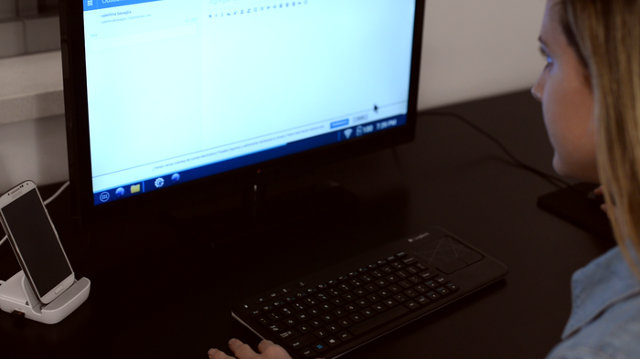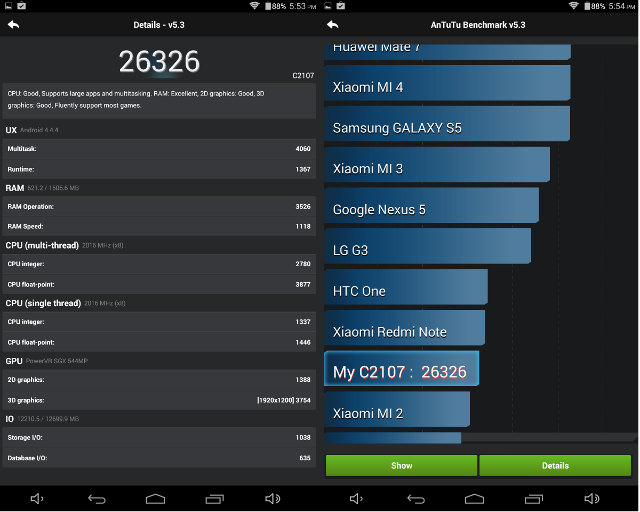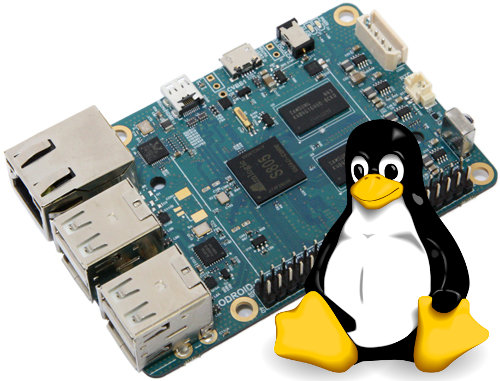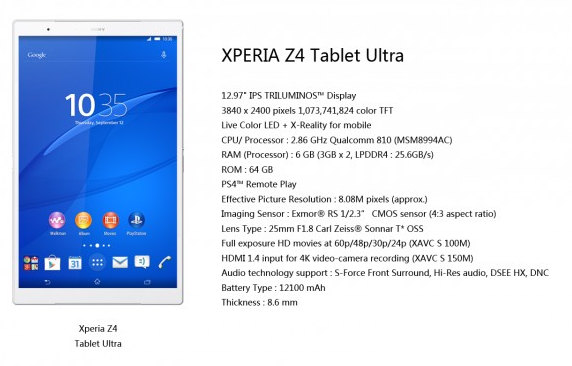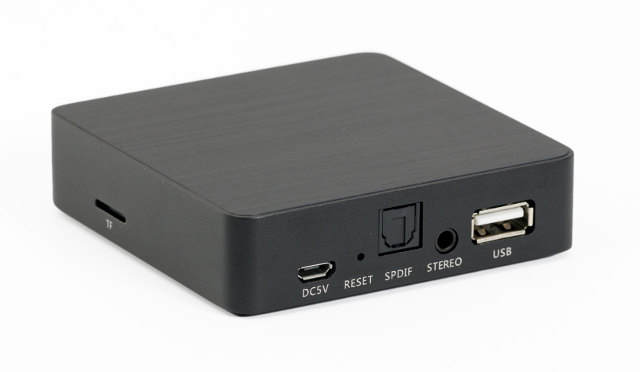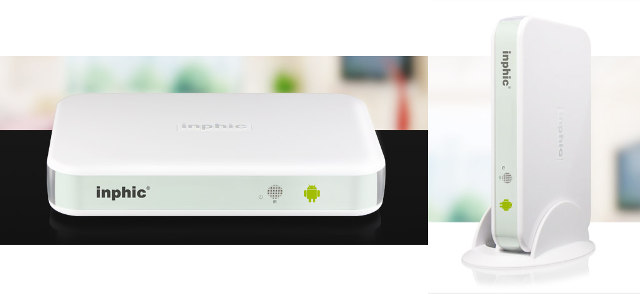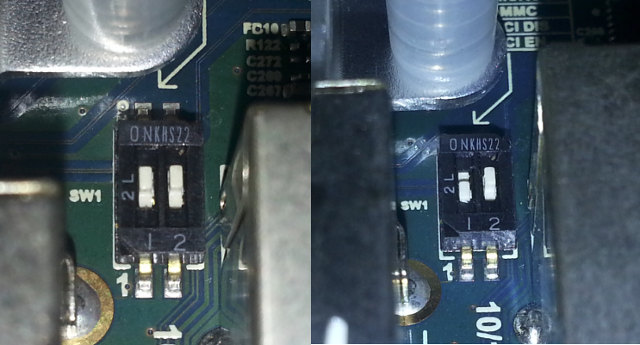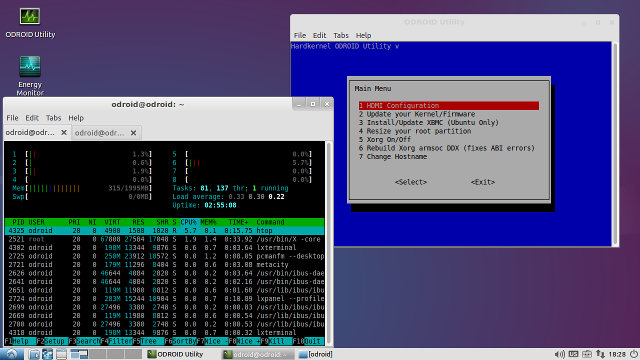Mobile desktop convergence has been a buzz word for several years now, and people have tried to use their smarphone as a desktop PC for a while thanks to technologies like MHL, which allows an easy connection between a phone and TV. However, mobile operating systems such as Android are not really suited for desktop use, and it can be a frustrating experience, so there needs to be different user interface in desktop and mobile modes for an optimal user experience. Canonical is working on this, and Ubuntu Edge, an ambitious, but ultimately failed crowdfunding campaign, was part of the strategy for convergence. But a team of developers lead by an ex-Google employee has been designed a solution with a desktop OS (Andromium OS) and a docking station that let you use your smartphone as a phone on the go, and as a desktop computer while docked, with Andromium user […]
Infocus CS1 A83 (C2107) Android Tablet Review
I’ve already shown some pictures, listed specs and reported Antutu benchmark results for Infocus CS1 A83 Android tablet powered by Allwinner A83T octa core processor. I’ve been using this tablet as my main mobile device for about a week, and for about 3 to 5 hours a day, and I’m now ready to write a full review reporting my experience with this Full HD tablet. General Impressions I mainly use a tablet to browse the web, check emails, play some casual games like Candy Crush Saga, watch some YouTube videos, and Skype calls, and I could not really fault the tablet for any of these applications. Having said that, my reference device is only ThL W200 smartphone powered by Mediatek MT6589T processor with a 5″ display @ 1280×720, and for all the tasks listed Infocus tablet is much better because it’s more responsive, the 1920×1200 is crisp, and the cameras […]
U-Boot and Linux Source Code for ODROID-C1 Board Has Been Released
Hardkernel ODROID-C1 board, a more powerful $35 alternative to the Raspberry Pi, garnered a lot of attention when it was announced last week. At the time source code was not available, but as scheduled, U-boot and Linux source code is now available, and the full Android SDL should be released on February 2015. Instructions to get the code, and build both Linux and U-boot are available on ODROID-C1 Wiki, and I’ve just given a try to Linux instructions myself to see if I would encounter any issues in Ubuntu 14.04. Download Linaro GCC 4.7 toolchain from Linaro or Odroid website. Install the toolchain. They install it on /opt/toolchain, but instead I’ve installed in ~/opt/toochain, so I don’t need superuser permissions: mkdir -p ~/opt/toolchains tar xvf gcc-linaro-arm-linux-gnueabihf-4.7-2013.04-20130415_linux.tar.bz2 -C ~/opt/toolchains/ Add the following lines to ~/.bashrc export ARCH=arm export CROSS_COMPILE=arm-linux-gnueabihf- export PATH=~/opt/toolchains/gcc-linaro-arm-linux-gnueabihf-4.7-2013.04-20130415_linux/bin:$PATH To apply change, log out and log in, or run: […]
Sony Xperia Z4 Tablet Ultra Could Feature a 12.9″ Display, a 64-Bit ARM Processor, 6 GB RAM, and More
That’s only a leak, but if true, the upcoming Sony Xperia Tablet Ultra would be a real beast with a 12.9″ IPS TRILIMINOS touchscreen display with 3840 x 2400 resolution, a Qualcomm Snapdragon 810 64-bit Octa core processor @ 2.86 GHz coupled with 6GB LPDDR4 RAM, and 64GB internal storage. Sony’s tablet ould also come with an HDMI 1.4 input port allowing 4K recording up to 30 fps, which looks like an odd feature for a tablet. The battery capacity would be rather large as well as 12,100 mAh, yet thickness only 8.6 mm, which might be possible due to the massive screen. It would most probably run Android 5.0 Lollipop. Via Mike Cane and Padnews.
UyeSee SoundMate WM201 Wi-Fi Music Streamer Features Actions Semi AM8253 SoC
EZCast dongles are wireless display dongle supporting Miracast, DLNA, Airplay, and EZCast protocol, and are all based on Actions Semiconductor AM8251 MIPS processor. The company has now designed AM8253 SoC specially for audio applications using these standards, and found in upcoming products such as UyeSee WM201 Wi-Fi music streamer. UyeSee WM201 specifications and features: SoC – Actions Semi AM8253 32-bit RISC processor @ 600 MHz with built-in 24-bit 96 KHz DAC System Memory – 64 MB DDR3 Storage – 128MB for firmware, and micro SD card for audio files Connectivity – 802.11 b/g/n Wi-Fi (150 Max). WPA, WPA2, and WPA2 Mixed security Audio Ports – 3.5mm audio jack, optical S/PDIF Wireless Audio Standard – Airplay, DLNA, Qplay and Ezcast Audio Format – MP3, AAC, WAV, FLAC, APE, OGG, WMA, DTS, AC3 (Dolby Digital), ra, AIF, AIFF, M4A(ALAC), MKA, MIDI,, TTA USB – 1x USB host port, 1x micro USB port […]
Inphic i8 Android Media Player Supports VP9 and H.265 Video Codecs, Features Allwinner H8 Processor
Allwinner H8 a new octa-core Cortex A7 processor for low cost Full HD media players with H.265 & VP9 codec support, and one the first product using the new Allwinner H-Series processor is Inphic i8, which sells for as low as 349 CNY (~$57) on JD.com and it’s also available on Taobao for 499 CNY (~$80). Some Inphic i8 boxes are available on Aliexpress, but so far all models are based on Allwinner A31s, promoted as quad core processor eight core GPU boxes, so don’t be fooled. Inphic i8 (Allwinner H8) specifications: SoC – Allwinner H8 octa-core Cortex-A7 processor @ 2.0GHz with PowerVR SGX544 GPU up to 720MHz System Memory – 1GB or 2GB DDR3 Storage – 8, 16, or 32GB internal storage Video Output – HDMI up to 1080p, Composite output (RCA) Audio Output – HDMI, and Left / Right RCA connectors Video Codecs Multi-format 1080p@60fps video playback, including […]
ODROID-XU3 Lite Board Ubuntu Review – Setup, Usability, and Performance
After testing ODROID-XU3 Lite with Android 4.4, and finding a workaround to some HDMI issues, I could finally try out Ubuntu, or rather Lubuntu with LXDE instead of Unity, in Hardkernel low cost octa-core development board. I’ll start this review by explaining how to install and setup Lubuntu on the board, followed by running various program to test the system usability as a desktop computer with LibreOffice, Chromium, XBMC, and 3D graphics, and finally run some performance tests with Phoronix Test Suit, build the Linux kernel natively, and transcode a video with avconf. Setting Up Ubuntu on ODROID-XU3 Lite All firmware images for ODROID development boards, can be found on odroid.in website, and if you want Ubuntu 14.04 image, go to ubuntu_14.04lts folder, to select the latest firmware file for your board. The latest image for ODROID-XU3 (Lite) is currently ubuntu-14.04.1lts-lubuntu-odroid-xu3-20141105.img.xz, it’s the same for micro SD card or eMMC […]
How to Modify HDMI Output Parameters in Linux for ODROID-XU3 (Lite) Development Board
Good news, I’ve finally managed to make HDMI output in my ODROID-XU3 Lite development board work with the Ubuntu image after some more tweaking. So ODROID XU3 Lite Ubuntu review is coming in the next few days. But first, I’ll explain the few steps I went through, in case others experience a similar issue. I downloaded, extracted, and flashed the latest Ubuntu image to a micro SD card with dd to give another try at running Ubuntu on my board, but no luck, I still got that black screen, albeit the system boots properly, as I got the command line using the serial console. During my Android review of ODROID-XU3 Lite, I noticed the system would always revert back to 720p60 video output, and HDMI output settings can be selected in /media/boot/boot.ini with the following content:
|
1 2 3 4 5 6 7 8 9 10 11 12 13 14 15 16 17 18 19 20 21 22 23 24 25 26 27 28 29 30 31 32 33 34 35 36 37 38 39 40 41 42 43 44 45 46 |
ODROIDXU-UBOOT-CONFIG # U-Boot Parameters setenv initrd_high "0xffffffff" setenv fdt_high "0xffffffff" # Mac address configuration setenv macaddr "00:1e:06:61:7a:39" #------------------------------------------------------------------------------- # Basic Ubuntu Setup. Don't touch unless you know what you are doing. # -------------------------------- setenv bootrootfs "console=tty1 console=ttySAC2,115200n8 root=UUID=e139ce78-984" # boot commands setenv bootcmd "fatload mmc 0:1 0x40008000 zImage; fatload mmc 0:1 0x42000000 u" # --- Screen Configuration for HDMI --- # # --------------------------------------- # Uncomment only ONE line! Leave all commented for automatic selection. # Uncomment only the setenv line! # --------------------------------------- # ODROID-VU forced resolution # setenv videoconfig "video=HDMI-A-1:1280x800@60" # ----------------------------------------------- # 1920x1080 (1080P) with monitor provided EDID information. (1080p-edid) # setenv videoconfig "video=HDMI-A-1:1920x1080@60" # ----------------------------------------------- # 1920x1080 (1080P) without monitor data using generic information (1080p-noedi) # setenv videoconfig "drm_kms_helper.edid_firmware=edid/1920x1080.bin" # ----------------------------------------------- # 1280x720 (720P) with monitor provided EDID information. (720p-edid) # setenv videoconfig "video=HDMI-A-1:1280x720@60" # ----------------------------------------------- # 1280x720 (720P) without monitor data using generic information (720p-noedid) # setenv videoconfig "drm_kms_helper.edid_firmware=edid/1280x720.bin" <strong> </strong> # ----------------------------------------------- # 1024x768 without monitor data using generic information # setenv videoconfig "drm_kms_helper.edid_firmware=edid/1024x768.bin" # final boot args setenv bootargs "${bootrootfs} ${videoconfig} smsc95xx.macaddr=${macaddr}" # drm.debug=0xff # Boot the board boot |
I actually tried a few settings in my previous attempt but unsuccessfully. Now […]


